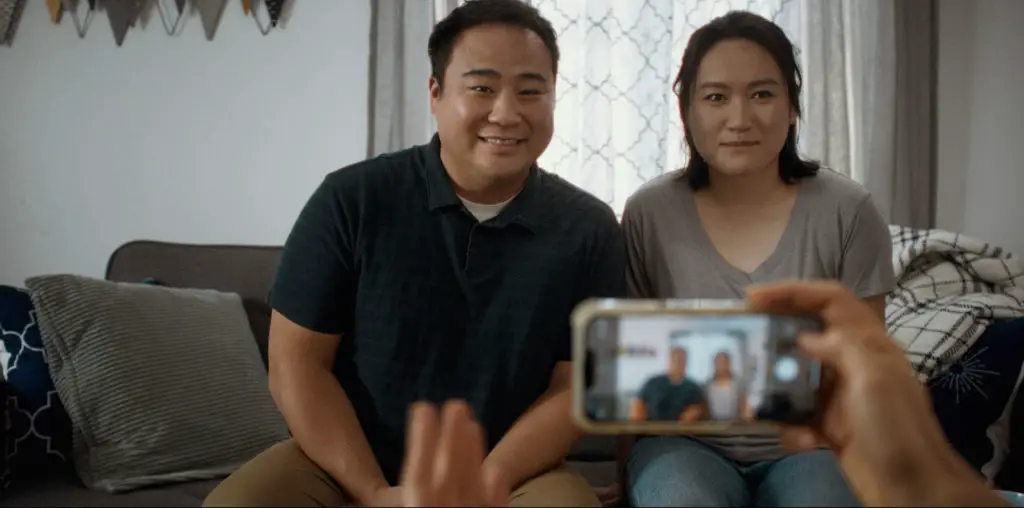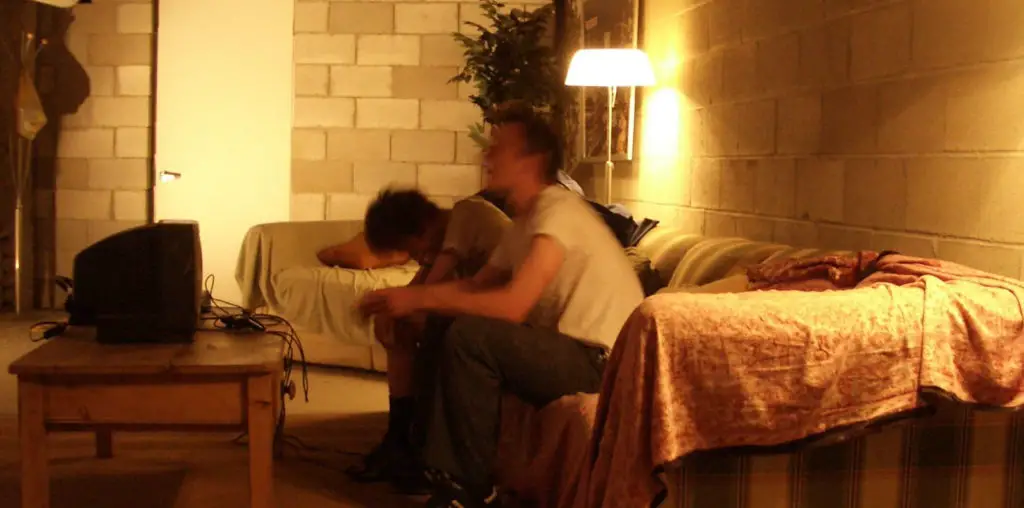
This film was released in its native cantonese as Nam yan sei sap (or Man, 40) which is quite different to its western title of July Rhapsody. They obviously both suggest later life but the change seems a bit jarring. Lam Yiu-kwok (Jacky Cheung) is the July in this instance; an outwardly successful pillar of society. But what rhapsody? He spends the film whittled by a change in seasons and he rhapsodizes over nothing. The rhapsodies are actually from a student who has developed a crush on him. This wobble in meaning is the sort of fun puzzle that validates world cinema; revelations about humanity in every shade and way, right down to the gristle of some marketing.
Yiu-kwok is a keen scholar of Chinese classics, and his talent with it has made him a terrific teacher. In an early scene he meets his friends at a restaurant. They are lively exemplars of the cut and thrust of Hong Kong commerce – a clever, affluent gang with their irons in every fire. As they pay it seems Yiu-kwok’s choice to teach has placed him a little apart from their daily affairs. But as the film progresses it is also equally apparent that this gap is the strongest bond the group shares with him, as they all turn to Yiu-kwok for his advice and confidence. His financial sacrifice in favor of edifying the young has perhaps turned him into a moral compass and totem for his otherwise free wheeling friends.
Enter Choy-Lam (Karena Kar-Yan Lam). Just about to leave school, she appears to be the only student of his possessed of aesthetics, inflamed by her classical education when most of the rich kids are just waiting out school so they can move on to the success that awaits them. They all seem nice enough but are unmoved by their lessons, and highly privileged. Choy-Lam scribbles adoring poems and notes about Yiu-kwok, endlessly flirting by means of cryptic statements and snark. At the film’s beginning he fends her off without a thought, but then his marriage hits the rocks and doubt slowly attunes him to her overtures. What follows is a gripping affair; toxic, grubby, and nihilistic, showing the stroke on the clock when death and decline begin their rule.
The story is one of different trajectories; the descent of Yiu-kwok, and the explosive vitality of Choy-Lam, with her incandescence exposing the beginnings of his decline. It takes place over a short period, where not much happens, but it still feels like we watch a death of sorts on screen, even if at the end everything looks the same.
“…has a flawless cast…”
July Rhapsody has a flawless cast. Jacky Cheung and Anita Mui bring a real dignity and wit to their portraits. Mui is terrifically sad and fried as Yiu-kwok’s wife, Man-Ching, and the alternating currents of doubt and optimism that make up young life are alive in Shaun Tam as their teenage son.
The film opens on telephoto photography of distant bathers and yachts in the afternoon sun at a shoreline where Yiu-kwok relaxes with his son. It resembles a Jack Vettriano painting brought to life. The sun drenched shots captured are glorious, a backdrop as crisp as paper for bathers to shimmer against like pictograms. It is perfect context for Yiu-kwok to add up his life, like the pages of the books he loves so much.
July Rhapsody is an intelligent, well composed drama full of terrific characters. Its story gives us a fascinating view into the lives and dreams tucked within the strata of Hong Kong society, and it does so with loving care.
This was Anita Mui’s last role before her death of cancer the following year. Man-Ching loves the poetry Yiu-kwok teaches too, and I wrote down the single line “Envying the eternity of the Yangtze”, which she quotes mid way through. I did this when I didn’t know her condition but there was something about the way she delivered it. Perhaps she knew when they were filming that her time was short. She looks haunted throughout and delivers a magnificent performance. It’s a worthy capstone to a great actress’s career.
"…We watch a death of sorts on screen"


